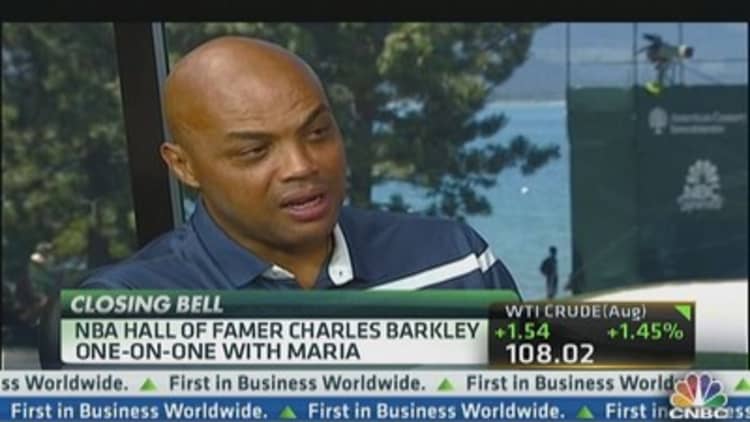Recently, music legend Stevie Wonder called for a boycott of Florida in the wake of the controversial acquittal of George Zimmerman, who fatally shot Trayvon Martin.
But Wonder — or those considering joining him — may want to avoid what could be a wasted effort. Economists say it's very difficult to pull off an effective boycott against something as big as a state.
Wonder—an instrumental figure in 1980s protests that are credited with helping to end apartheid in South Africa—called for fellow entertainers to join him in the boycott.
Yet for a variety of reasons, most economists are doubtful about how effective economic protests can be—especially when the target is an economy the size of Florida's, and a boycott lacks both consensus and widespread backing.
P. Sergius Koku, an economist at Florida Atlantic University who has written extensively on consumer boycotts, said he highly doubts that a protest among entertainers against the Sunshine State would draw financial blood. A primary reason is the "buycott" factor—counterprotests staged by parties sympathetic to the state.
"Entities that support boycott targets also emerge to embark on 'buycotts' in order to neutralize boycotts," Koku told CNBC. "The boycott targets themselves mount often effective campaigns to blunt the boycott's effect," which can include marketing their goods and services more heavily to alternative markets, he said.

Boycotts do sometimes facilitate a "vote with your dollars" effect that can bring attention to important issues—in the case of Florida, a contentious "Stand Your Ground" law that allows deadly force in cases of self-defense.
History has several scattered examples where economic protests have inflicted economic damage or brought about wholesale policy change. Arizona's reluctance to honor Martin Luther King Jr. by offering employees a paid holiday cost the state the 1993 Super Bowl, and an estimated $500 million in lost revenue.
Boycotts are partly credited with the end of apartheid in South Africa. Also, the Montgomery, Ala., bus boycotts in the 1950s crippled the city while vaulting the civil rights movement into the national spotlight.
However, the bark of an economic protest is often far greater than its actual bite. Florida's economy tops $750 billion, and possesses a tourist and entertainment industry of about $67 billion, according to state data. That dwarfs the global revenue power of even the biggest entertainers on earth.
"It's all about magnitude," said Dan Mitchell, senior fellow and economist at the libertarian think tank Cato Institute. He cited the greater effectiveness of "government-enforced boycotts" that can isolate an entity and batter its ability to earn money.
In that vein, modern-day Florida doesn't rise to the level of pre-apartheid Johannesburg. Mitchell said a decision by entertainers to stay away from the state could even help other acts, if it were to drive down booking prices and thereby give lesser-known artists a chance to perform in places they wouldn't normally.
"At the end of the day I would be stunned if this boycott had any impact on the state of Florida," Mitchell said.
Gary Burtless, an economist with the Brookings Institution, said a boycott's effects would likely be born less by Florida's government than by music fans.
"One of the challenges is that people who would support [boycotting musicians'] point of view would be in the audience they'd be entertaining," Burtless said. "Your moral position can sometimes have terrible consequences on the people you're seeking to help."
—By CNBC's Javier E. David



